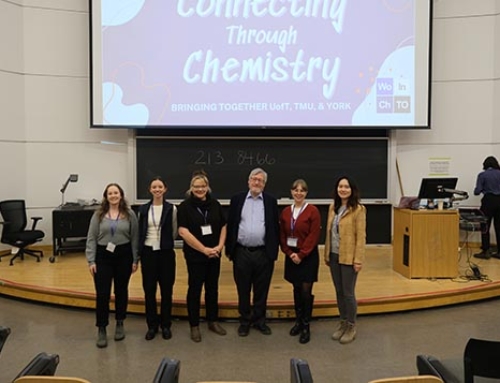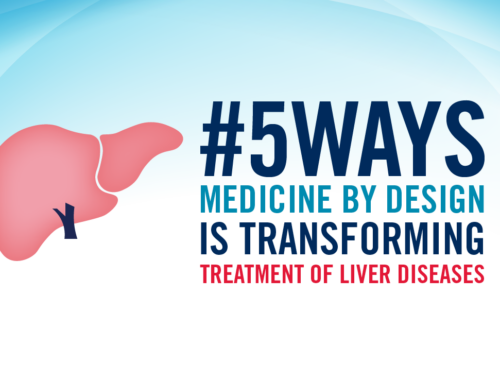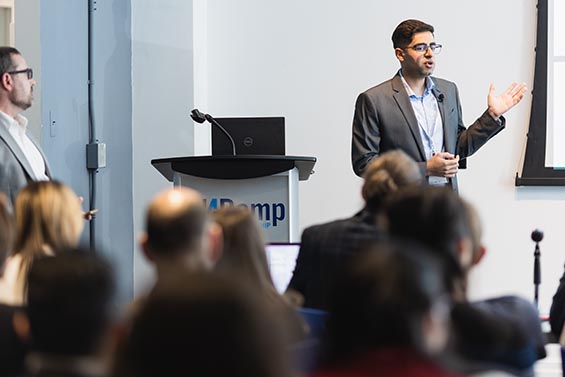
Marc Shenouda, from the team Neuropeutics, presents at the 2023 Building a Biotech Venture Pitch Competition. (Photo by Neil Ta.)
The University of Toronto (U of T) and its affiliated hospitals are world leaders in regenerative and precision medicine research.
The Building a Biotech Venture Pitch Competition will showcase six teams — made up of graduate students, post-doctoral fellows, research/scientific associates, scientists and clinicians — working on innovations that will impact diseases like heart failure, sepsis and cancer. This year’s competition will take place on Wed., March 27, at William Doo Auditorium at U of T.
Regenerative medicine aims to regenerate and repair the body with stem cells and other living therapies. Precision medicine focuses on the personalization of preventions and treatments for individual patients.
Competition harnesses emerging talent and encourages innovation
Allison Brown, Medicine by Design’s executive director, says that U of T and its affiliated hospitals are the home institutions to some of the most talented researchers in the world.
“The researchers and clinicians we work with through Building a Biotech Venture are working in world-leading regenerative and precision medicine labs” says Brown. “Many of them want to translate the cutting-edge discovery work they’ve been doing into a positive impact on society. The program is designed to help them start doing that.”
Since fall 2023, this year’s cohort has participated in an entrepreneurial education program tailored for the biotech industry. Each team participating in the program has worked through the earliest stages of commercializing a real-world technology or product that has emerged from their lab research.

Judges and audience at the 2023 Building a Biotech Venture Pitch Competition. (Photo by Neil Ta.)
Six of the teams that went through the program have been selected to pitch their venture concept in front of four expert judges for the chance to receive one of two research funding grants, valued at $25,000 and $10,000.
The program has been running since 2021. It is a collaboration between Medicine by Design, an initiative that drives regenerative medicine research at U of T and its affiliated hospitals toward clinical impact; the Precision Medicine Initiative (PRiME), a U of T strategic initiative that aligns research efforts in the area of next-generation precision medicine at U of T and its global partners; the Health Innovation Hub (H2i), a campus-linked accelerator at U of T’s Temerty Faculty of Medicine; and Talk Boutique, a full-service speaker representation and coaching company.
This year’s event will be the fourth annual pitch competition.
Teams are active and thriving beyond the program’s end
Many teams that formed and put together their initial business plan in the Building a Biotech Venture program over the past four years are still growing their ventures, with a number having gone on to secure additional investment.
HDAX Therapeutics, the 2021 Building a Biotech Venture Pitch Competition winner, also won a $250,000 award from the Ted Rogers Centre for Heart Research’s Entrepreneurship for Cardiovascular Health Opportunities (ECHO) program.

Nabanita Nawar, co-founder and CEO of HDAX Therapeutics, winner of the 2021 Building a Biotech Venture Pitch Competition. (Photo provided by Nananita Nawar.)
“Building a Biotech Venture was an incredible opportunity to showcase our technology, which really prompted us to take our venture to the next stage, and we formed the company shortly after the program,” says HDAX co-founder and CEO Nabanita Nawar.
In addition, 2022 winner DTPX went on to receive $100,000 at a competition for Ontario-based cancer entrepreneurs called Falcons’ Fortunes. Other winning and participating teams including Synakis, Neuropeutics and Specifix DX have gone on to place in other competitions and secure additional pre-seed funding.
Paul Santerre, the director of H2i and a professor at the Faculty of Dentistry and the Institute of Biomedical Engineering at U of T, says that the program builds a foundation that gives the ventures staying power.
“Several teams from the past four years of the program year are still active with the support of H2i and Toronto’s entrepreneurial ecosystem. They’re winning pitches including U of T’s Desjardins Startup Prize, negotiating investments and advancing their IP,” says Santerre. “Because they learn to focus on critical matters during venture development in the program, they come out with the tools and support to keep progressing.”
The Building a Biotech Venture program is a complement to scientific education and training, says Akshita Vincent, director of strategy and partnerships at PRiME.
“By equipping participants with these essential skills, we not only lay the groundwork for the emergence of transformative products and ventures, but also foster a deep understanding of the multifaceted biotechnology sector. From developing intellectual property to learning about concepts like clinical translation, regulatory affairs and communications, these skills empower participants to navigate the industry and pursue impactful careers. Ultimately, the program enhances accessibility to life-changing innovations for patients in need,” Vincent says.
Register to watch the Building a Biotech Venture Pitch Competition.
Meet the teams
 CHI Diagnostics
CHI Diagnostics
Developing diagnostic tools to define adverse outcomes in patients with inflammatory conditions such as transplantation, cancer and cardiovascular disease.
Team members: Filio Billia (principal investigator), John Dick (principal investigator), Sagi Abelson (principal investigator), Fernando Luis Scolari, Jessie Medeiros, Darshan H. Brahmbhatt, Tafsia Hussain, Gary Bader (principal investigator)
University Health Network
 Helixir
Helixir
Helixir will demonstrate that stem cell therapy can be effectively delivered using their proprietary MRI delivery technology. This technology will lead to minimally invasive regenerative therapies that have more accurate targeting and increased retention of therapeutic cells.
Team members: Daniel Djayakarsana, Jaykumar Patel, Moses Cook
Sunnybrook Research Institute
 NorthMiRs, Inc.
NorthMiRs, Inc.
Sepsis is the most common cause of death in critically ill patients. Doctors rely on supportive care for these patients as there are no specific treatments addressing the underlying immune dysregulation. NorthMiRs is developing a library of microRNA-based therapies that treat both systemic inflammation and organ-specific dysfunctions to ultimately improve patient outcomes, free ICU space and reduce the financial burden on the health system.
Team members: Samantha McWhirter, Logan Zettle, Chirag Vaswani, Amin Ektesabi
University of Toronto, Unity Health Toronto
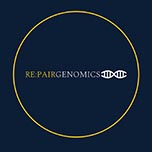 Re:Pair Genomics
Re:Pair Genomics
Re:Pair Genomics has developed AI software to design compact GPS DNAs for gene therapy to make it safe and increase product success in the clinic. What traditionally takes scientists three to six months can now be generated within a day. Their innovation holds significant promise for biotech and pharmaceutical firms engaged in gene therapy research and development.
Team members: Luca Hategan, Yosuke Niibori, Shiron Lee, Swapna Prakash
University of Toronto
 Twenty-nine Therapeutics
Twenty-nine Therapeutics
Twenty-nine Therapeutics includes the exploration of a promising radiopharmaceutical candidate, Copper 67 (Cu-67), including its various nanomedicine applications. Cu-67 usage is novel and holds potential in theranostics and diagnostic imaging. The project Twenty Nine Therapeutics team is proposing a theranostic pairing of Copper 64 and Copper 67, making this the first combination of these two isotopes in a nanoparticle. The isotope also has unexplored promise in the treatment of various cancers, particularly those that have metastasized to the peritoneal lining. The team is exploring ways to firstly, manufacture and safely ship Cu-67 and secondly, examining its various therapeutic applications.
Team members: Michael Valic, Gang Zheng (principal investigator)
University Health Network
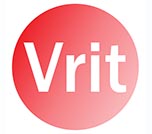 Vrit
Vrit
Vrit is pioneering a future where autografts are no longer necessary for surgeries. Vrit’s handheld bioprinter, part of their broader biomaterials initiative, empowers surgeons to provide advanced care to patients by eliminating the reliance on traditional invasive techniques.
Team members: Sushant Singh, Zhenglin Lu, Michael Li Diao
University of Toronto
Meet the Judges
Ella Korets-Smith, Chief Strategy Officer and Co-Founder, Virica Biotech
Mathew Platt, Head of Venture Recruitment, Creative Destruction Lab
Robin Quirk, Vice President Technology Sourcing & Venture Development, CCRM
Suman Rao, Senior Associate, Lumira Ventures



